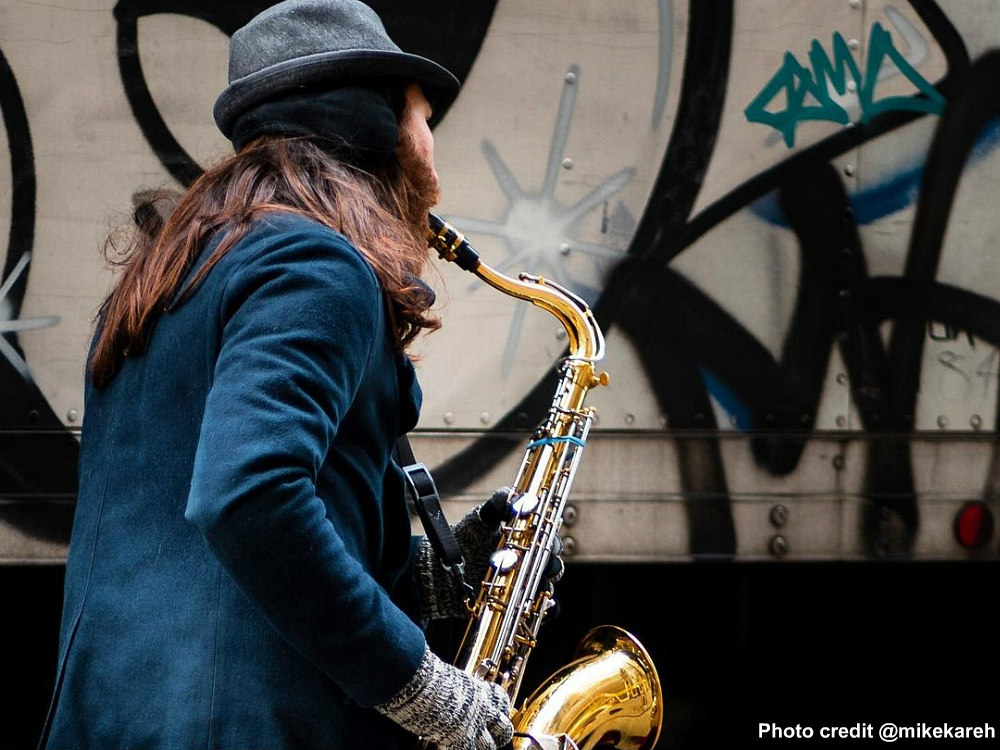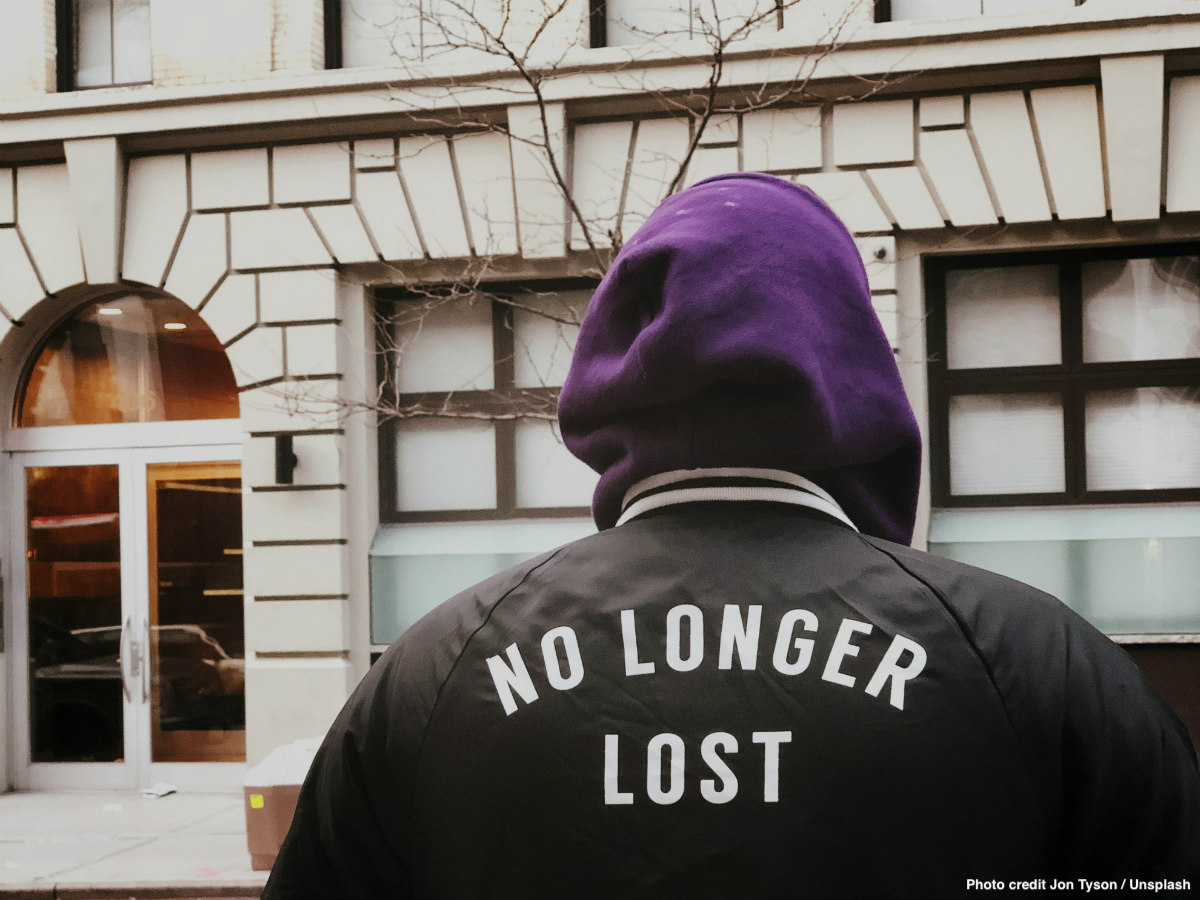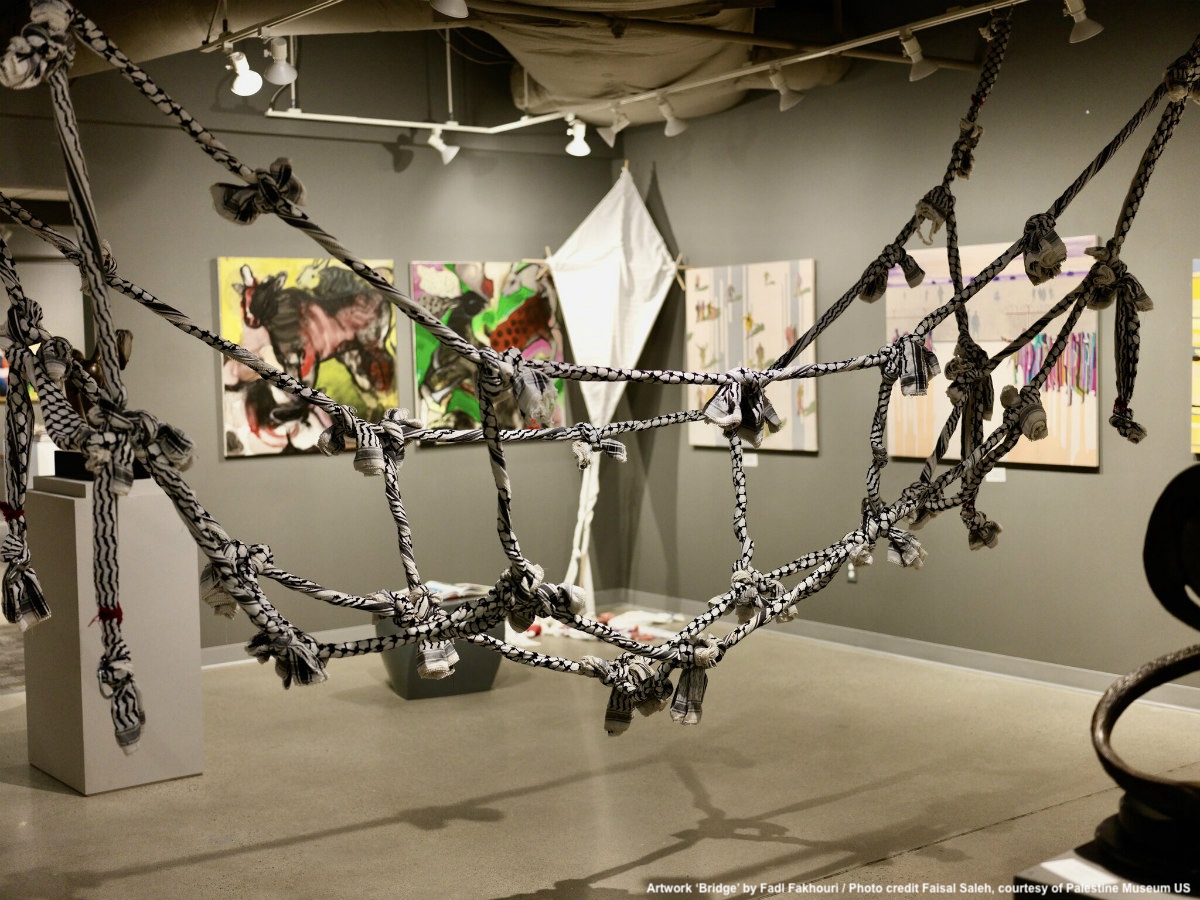As the winter hits New York, the city goes silent again. Throughout the summer and into the fall al fresco music took over the characteristic sounds of frenzied horns of yellow cabs, the rattle of the subway or the heels of running executives, all turned down by the pandemic. In particular, jazz music was everywhere in New York.
Playing gigs at public space – across the city’s parks, stoops and sidewalks – offered musicians a way to earn some money and provided some therapeutic relief. After the first coronavirus outbreak the places where musicians used to play regularly canceled most of the shows putting them out of work.
Although today New York also sounds like rap and hip-hop with renowned figures coming from neighbourhoods like Queens or Brooklyn, there was a time when it really all sounded like jazz.
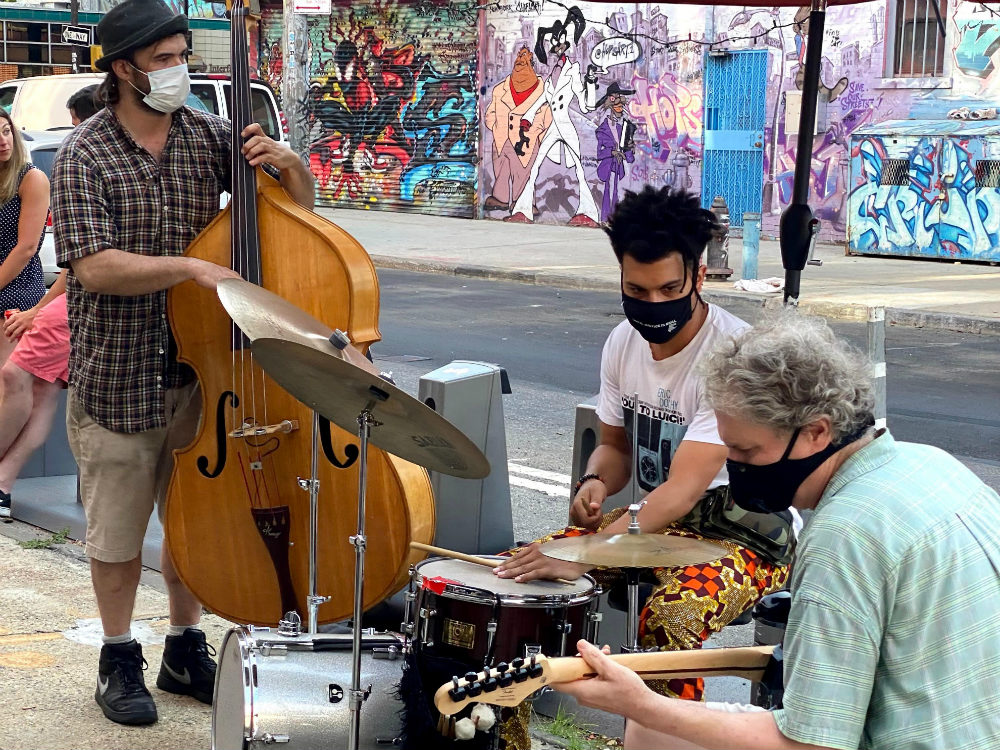
From the mid-1950s New York became an epicentre for jazz due to the exodus of great musicians from cities like New Orleans, where jazz had its roots but the influenza epidemic cast a gloom over the city. Greats like Charlie Parker relocated from Kansas City to Manhattan. It is impossible to talk about music in New York and not name Duke Ellington, John Coltrane, Louis Armstrong or Miles Davis, key figures in a city that became a sanctuary for jazz musicians to this day.
Where to listen to live jazz in New York
Musicians from all over the world come to the Big Apple to perform with other artists and nurture their creative side. They want to play in real jazz clubs. Unfortunately many of the old jazz clubs have disappeared and live on only in memory.
‘There are just a few clubs where it’s all about the music’, explains Mitchell Borden. He is the founder of legendary jazz clubs Smalls and Fat Cat in New York City. The original Smalls Jazz Club was created in 1994 and was a raw basement space and had no liquor license.
‘For just $10, patrons could bring their own beer and come to the club at any time, day or night. They could stay as long as they liked and often left just as day began to break’. That was Borden’s concept. There’s no bar scene, no food. It’s all about the music and the musicians who created it.
By the end of the 90s, the urban revitalization of New York transformed the economic landscape. The city became less affordable for musicians due to high rents and became less manageable to store instruments or find a place to practice.
Mitchell Borden has been working with the jazz community in the city for over 25 years and has seen how it has been facing difficulties over time.
Music had already started to have a low turnout before the pandemic, explains Borden.
‘Restaurants, which always wanted to offer live music over dinner, stopped for some reason. They don’t see the added value of live music to customers. Covid-19 might accelerate a trend that was already under way. Now, more than ever, many musicians have lost their livelihoods. And we are fearful for the future of jazz music. We want to save jazz and revive New York’.
Covid-19 is hurting music because no one is demanding it
One year after retiring from running Smalls, Mitchell Borden and his wife, the jazz musician Rie Yamaguchi-Borden, have founded the not-for-profit organization Gotham Yardbird Sanctuary in response to the impact of the 2020 global pandemic on the jazz community and local businesses of New York.
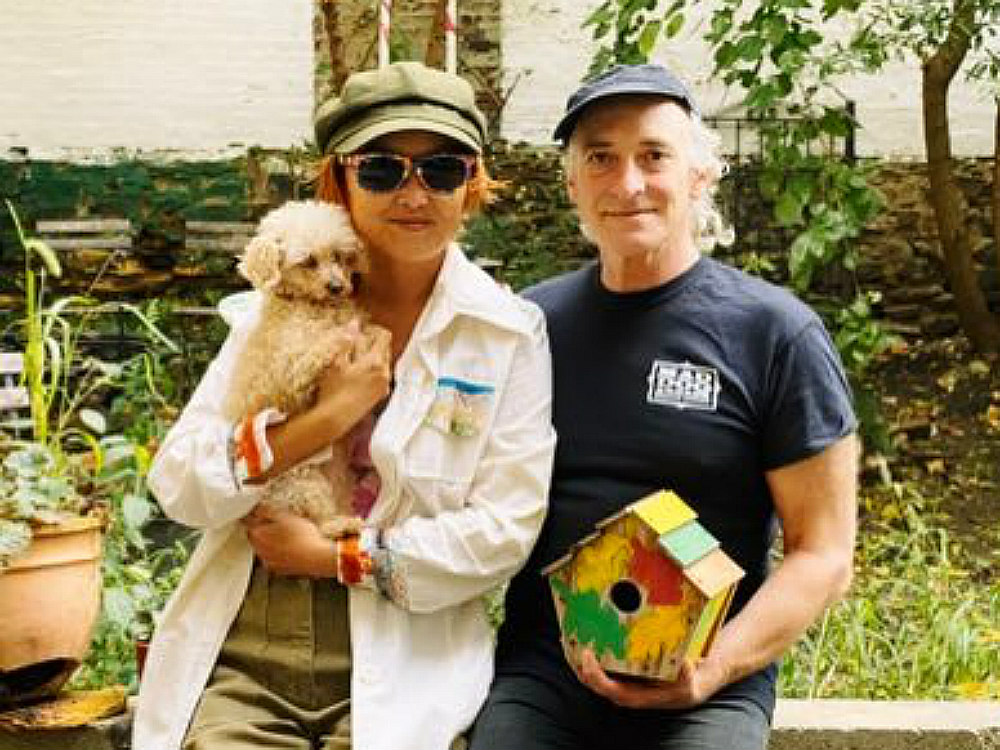
Starting from this month, Gotham Yardbird Sanctuary will create immediate jobs with respectable pay for jazz musicians (at least $100 per musician for each show) via donations. In exchange musicians will provide free-to-all live jazz performances in various places all over New York City.
We want to restart live music shows to bring jazz back to people, reach wider audiences to save the music and New York.
‘By doing this we will also support many hard-hit local businesses such as restaurants and bars, art museums and galleries, food courts, churches, organic rooftop gardens, etc. to increase their turnout by benefiting from subsidized performance fees’, claims Borden.
‘Jazz is a symbol in New York, but it is losing traction. The cultural jazz scene doesn’t look good right now, also in part because the social climate isn’t that good either. Moreover, people are trending just towards studio music, at home, and this is not really good for jazz. Musicians get rusty because they need to play together on stage for people and to connect with each other, not just through the computer’.
Under Borden’s curation, Gotham Yardbird Sanctuary wants to energize musicians, build musical stamina, and with it boost high quality music that makes New York a renowned place for jazz. Both founders know a large talent base in the city which is not being used. And, most importantly, they know what a respectul gig is.
How to monetize culture in the city but give free rein to innovation
‘Here is the thing. Even if New York is a tough place, it keeps attracting great players from everywhere. Musicians choose to come to New York because they need to play with other people. They wanna play music anyway, that is when people take advantage of them and don’t commeasure their artistic contributions’.
Borden approached business from a stance of generosity rather than profit at his club Smalls. He founded the club with the strong belief to create an environment that was devoted to jazz music and its culture. Under his generous care, a culture of vibrant and newly energized young musicians claimed Smalls as their home base and began to develop their individuality in the music. Borden’s philosophy gave musicians the freedom to somehow run the show in their own way so that every night will be different from the other.
‘The musicians are always so willing to play that they do their part very well. My part was to pay the rent, the musicians and to keep the doors open for everybody to come, relax and enjoy the music’, says Borden.
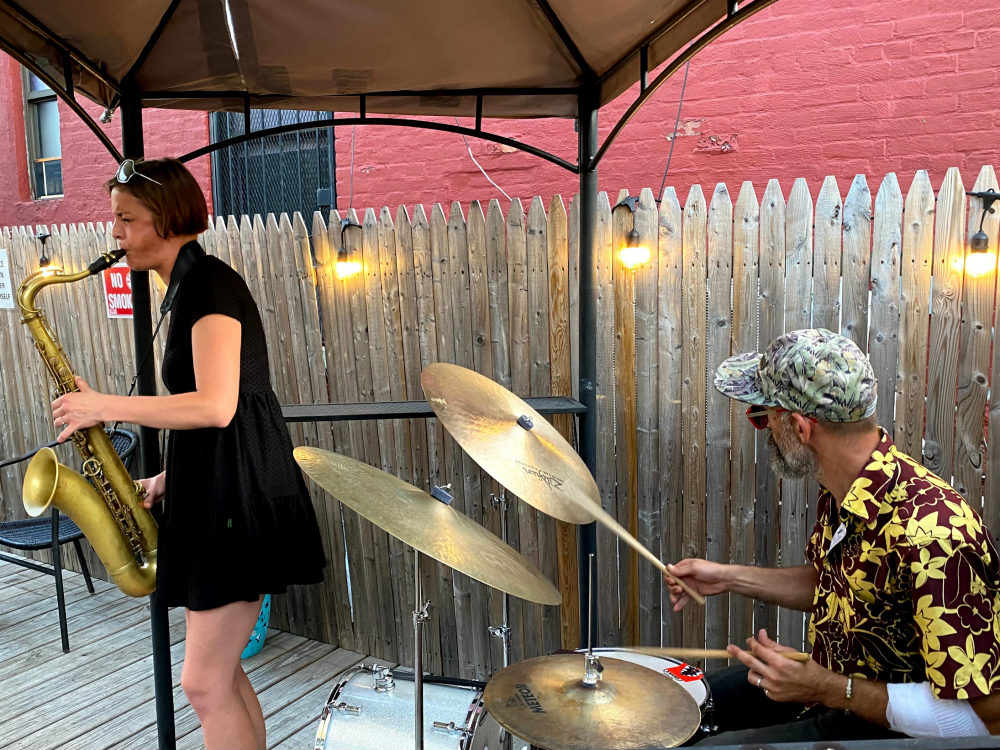
However, it is difficult to keep this mentality of putting music, or any form of culture, ahead of profit. The modern trend to monetize everything ignores the intangible value of spontaneity and freedom to create music, close to people, being inspired by the moment. Artists react to what is happening around them.
‘We took culture from the street, from the place it was born, and brought it to big venues, to monetize it. But we have to find a way back to people, to get intimate again’, says Borden.
The loss of the jazz scene would be a tremendous loss to the New York arts community
Finding the right balance between culture and business is not easy. Public museums rely heavily on foundations, trusts and personal contributions against a backdrop of government budget cuts. In the jazz scene the cultural assets are musicians and their talent to create more. If musicians one day would decide that New York just isn’t worth the hassle anymore, New York and the world would starve from jazz culture.
I believe the focus is all on the musicians, so Borden. They need a steady income for survival to keep the jazz flame alive.
‘This is not much to ask to avoid a huge potential loss for New York culture. The jazz scene is really a few people. At some point it was even just one person, Charlie Parker. He was a rare thing; he educated everybody. Musicians just want to play many different kinds of jazz music and be a part of a community of high-quality artists to get inspired. They are so passionate about what they do that they don’t try to take any advantage. Instead they support you and get behind your back. I wasn’t a great business person but I know musicians very well’.
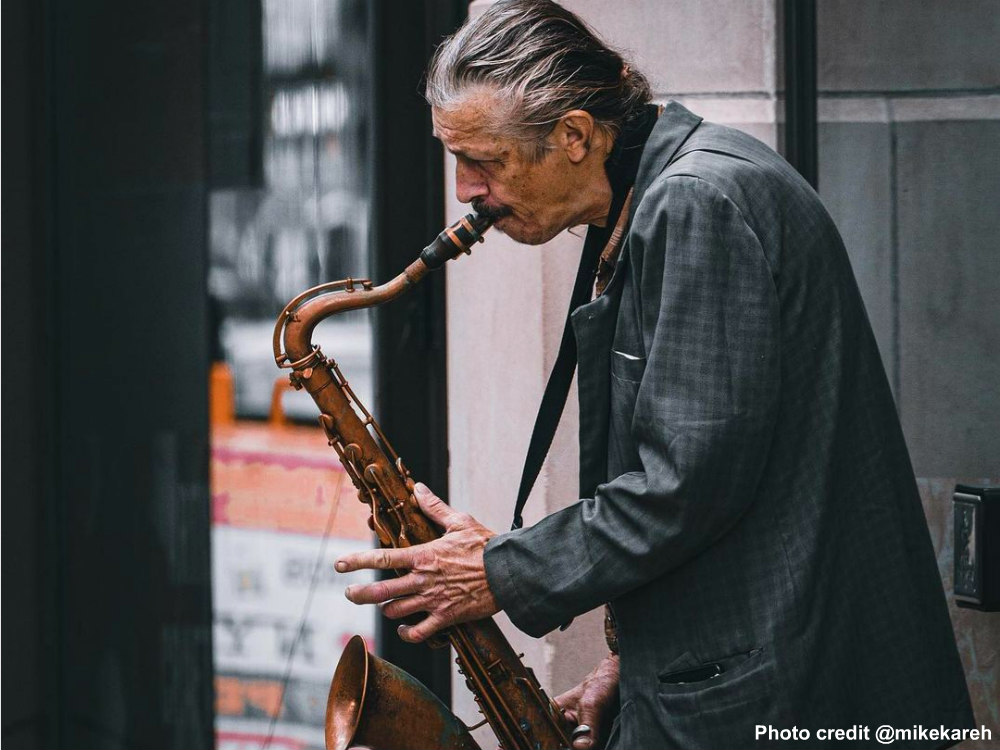
In the absence of any Government financial support, Gotham Yardbird Sanctuary is launching a fundraising campaign for three months. Anyone can contribute. Both founders strongly believe that many New Yorkers would like to back its cause because they not only want to save jazz and help the city, they also remain committed to presenting artistry on the New York stage to the world.
Let’s keep the music playing
This winter will be really hard to get through. Gotham Yardbird Sanctuary is a temporary solution, simple but meaningful, for many venues in New York, like independent galleries and private museums, that share the same spirit and commitment to culture. NYC has started a banning of indoor dining. But locals are finding ways to accommodate visitors outdoors as long as the city does not get into lockdown again.
‘We lost a lot of momentum in the jazz scene, we need to bring this momentum back again. It doesn’t take so much. I was only one person when I founded Smalls but I did a lot. It takes only that one person, who is really devoted to the jazz community’.
The influence of Charlie Parker in Borden’s endeavour can’t be overlooked. Charlie Parker, nicknamed “Bird” and “Yardbird”, was a revolutionary of his time introducing new ideas to jazz. Mitchell Borden and Rie Yamaguchi-Borden have dedicated their lives to the jazz community since the 90’s. They have a great faith in the power of jazz, which has been a synonym for New York City’s vibrant culture through many decades.
‘Jazz will encourage empathy, resilience and unity to guide us through these difficult times. We just want to spread joy and love around, this is what music is all about’.
What would be the world if there would be no music, no jazz!
